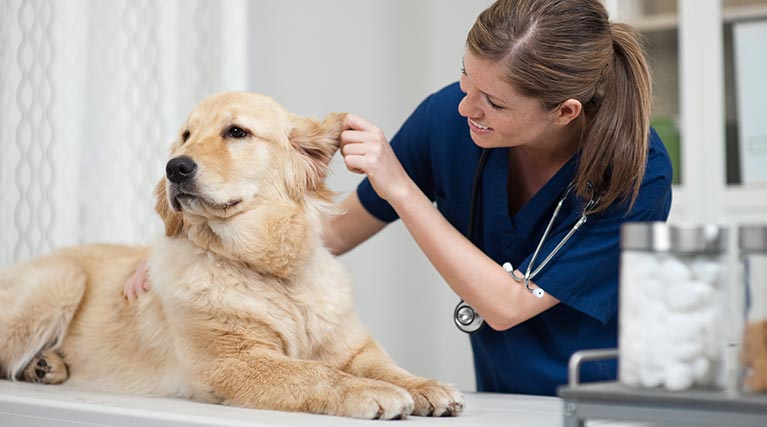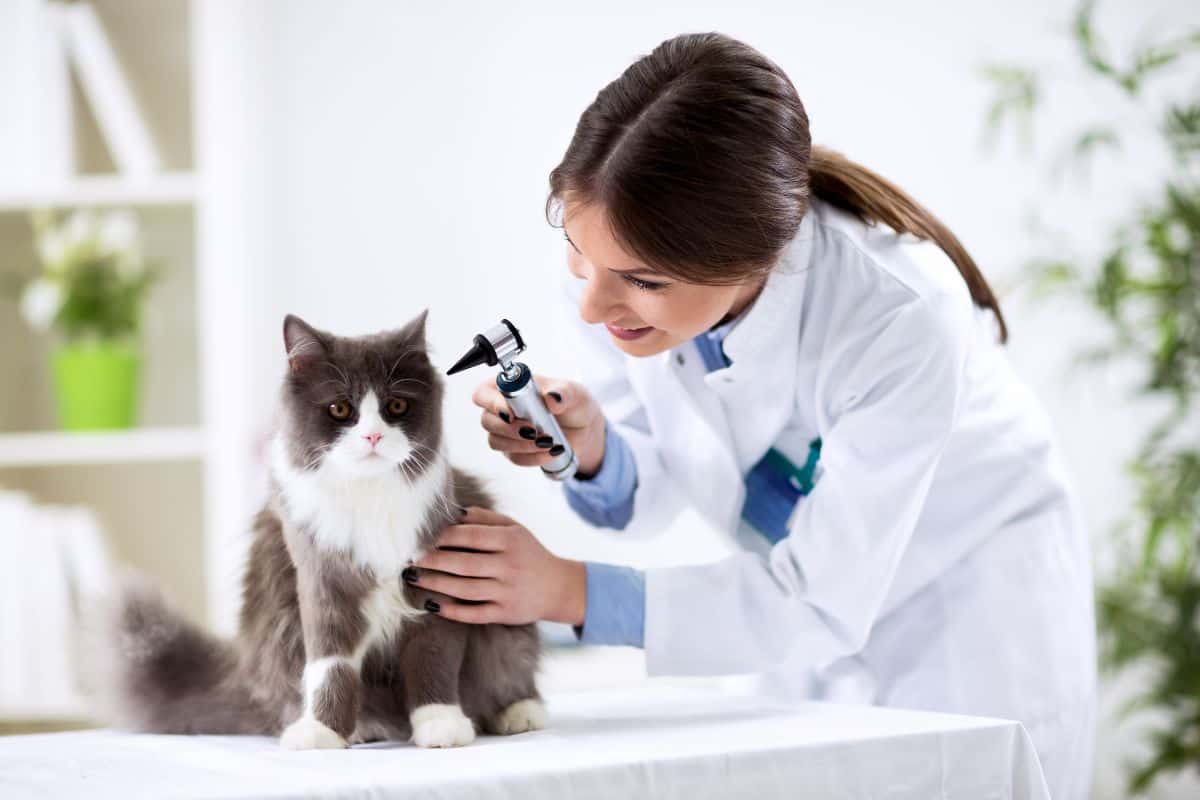Just How Emergency Vet Services Can Offer Immediate Alleviation for Pet Health Situations
Just How Emergency Vet Services Can Offer Immediate Alleviation for Pet Health Situations
Blog Article
Vaccination Standards From Your Relied On Veterinarian
Vaccination standards given by your trusted veterinarian play an essential duty in securing your pet's health and wellness and health. In addition, resolving typical misconceptions surrounding vaccines can further boost pet dog proprietors' confidence in these preventive measures.

Relevance of Vaccinations
Vaccinations play a crucial function in safeguarding pet dogs versus a series of avoidable illness. By stimulating the body immune system to recognize and deal with particular virus, injections considerably reduce the occurrence of infectious conditions that can impact a pet's wellness and durability. Not only do inoculations safeguard individual pets, however they additionally contribute to herd resistance, thereby reducing the overall occurrence of diseases in the family pet population.
Timely vaccinations aid to reduce the spread of conditions such as rabies, parvovirus, and distemper, which can have extreme repercussions for both animals and humans. Moreover, vaccinations are typically a need for boarding centers, grooming services, and pet dog parks, making them vital for those who desire to socialize their animals.

Core Injections for Animals
While the particular vaccination requirements of animals can differ based upon individual variables, core vaccinations are universally recommended to protect against one of the most significant and usual conditions (Vet Enterprise). Core injections are those considered crucial for all family pets, despite their way of life or geographical location, as they protect against potentially deadly and highly transmittable health problems
For pets, the core injections include those for canine distemper, parvovirus, adenovirus (hepatitis), and rabies. Canine distemper is a viral condition that affects the respiratory system, stomach, and nerves. Parvovirus is known for causing severe stomach disease, particularly in puppies. Adenovirus can cause liver condition, while rabies is a zoonotic disease that presents a danger to both humans and animals.
In pet cats, core vaccines incorporate feline panleukopenia, feline calicivirus, feline herpesvirus (rhinotracheitis), and rabies. Feline panleukopenia is an extremely contagious viral disease that affects the immune system and intestines. Calicivirus and herpesvirus are significant factors to upper respiratory system infections in cats, while rabies remains a crucial issue for public wellness.
Seek advice from with your vet to ensure your pet dogs receive their core vaccinations on time.
Non-Core Vaccines Explained
Non-core vaccines are tailored to deal with certain risks connected with a pet dog's exposure, way of life, and setting to specific conditions. Unlike core vaccines, which are generally advised for all family pets, non-core vaccinations are considered based upon private circumstances. These vaccines are especially important for animals that may come across distinct pathogens due to their geographical location, traveling behaviors, or tasks.
Examples of non-core vaccinations include those for Bordetella bronchiseptica, which is linked to kennel coughing, and Lyme illness, brought on by ticks. Pets that often communicate with other animals, such as those in boarding facilities, pet dog parks, or brushing environments, more info here may profit from Bordetella inoculation. In a similar way, if you reside in an area where Lyme illness prevails, vaccinating versus this disease can be browse this site a sensible choice for outdoor-loving dogs.
Various other non-core vaccinations may consist of those for leptospirosis, canine flu, and feline leukemia, relying on the details threat factors existing. It is crucial to have a thorough conversation with your vet about your animal's way of life and the prospective requirement for these injections, making certain a customized inoculation approach that finest protects your fuzzy close friend.
Inoculation Set Up Review

As family pets mature, it is very important to adhere to the recommended booster inoculations. Veterinarian Enterprise. For adult animals, core vaccinations are normally provided each to 3 years, depending on the particular vaccine and neighborhood guidelines. Non-core vaccinations may be advised based on way of life factors and local condition prevalence, demanding a customized strategy
Regular vet check-ups are crucial for upgrading inoculation timetables. Your vet can supply guidance on one of the most suitable booster shots for your pet, factoring in age, health standing, and environmental threats. By staying positive and informed, pet dog owners can ensure their furry companions get timely and reliable inoculations, consequently protecting their wellness and health throughout their lives.
Usual Myths About Injections
Mistaken beliefs about pet dog inoculations can result in complication and hesitation amongst animal owners concerning the immunization procedure. One common misconception is that vaccinations are unnecessary for indoor pets. While it holds true that indoor pets deal with lower threats, they are not totally immune to conditions, as microorganisms can be presented through various methods, including human garments and other family pets.
Another misconception is that vaccinations can cause the conditions they intend to avoid. Actually, many vaccines contain inactivated or attenuated pathogens, which can not cause disease in healthy and balanced pets. Some family pet owners additionally think that their family pets need to not be immunized if they are already healthy; however, vaccinations are a positive procedure that aids prevent the beginning of illness.
Additionally, lots of pet owners are afraid that vaccinations will lead to long-term wellness issues. The advantages of inoculation-- shielding animals from possibly lethal conditions-- far exceed the threats.
Conclusion
In summary, adherence to vaccination standards is essential for making sure the health and durability of pets. Core vaccinations offer essential protection versus serious conditions, while non-core vaccines attend to certain risks based upon specific lifestyles. Establishing a thorough inoculation schedule, in combination with regular vet check-ups, useful content facilitates optimum health and wellness monitoring. Dispelling common misconceptions surrounding inoculations better strengthens the importance of notified decision-making in family pet treatment. Ultimately, an aggressive strategy to inoculations is vital for preserving pet dog health.
Not only do inoculations protect specific animals, however they additionally add to herd immunity, thus lowering the overall frequency of conditions in the pet population.
Misconceptions regarding pet dog inoculations can lead to confusion and reluctance among pet owners concerning the immunization process. While it's true that indoor pet dogs encounter reduced threats, they are not totally immune to illness, as pathogens can be introduced through various ways, consisting of human apparel and various other pet dogs.
Some family pet proprietors additionally believe that their pets should not be vaccinated if they are currently healthy; however, inoculations are a positive step that helps prevent the beginning of disease.
The benefits of vaccination-- protecting pets from possibly deadly diseases-- far surpass the threats.
Report this page